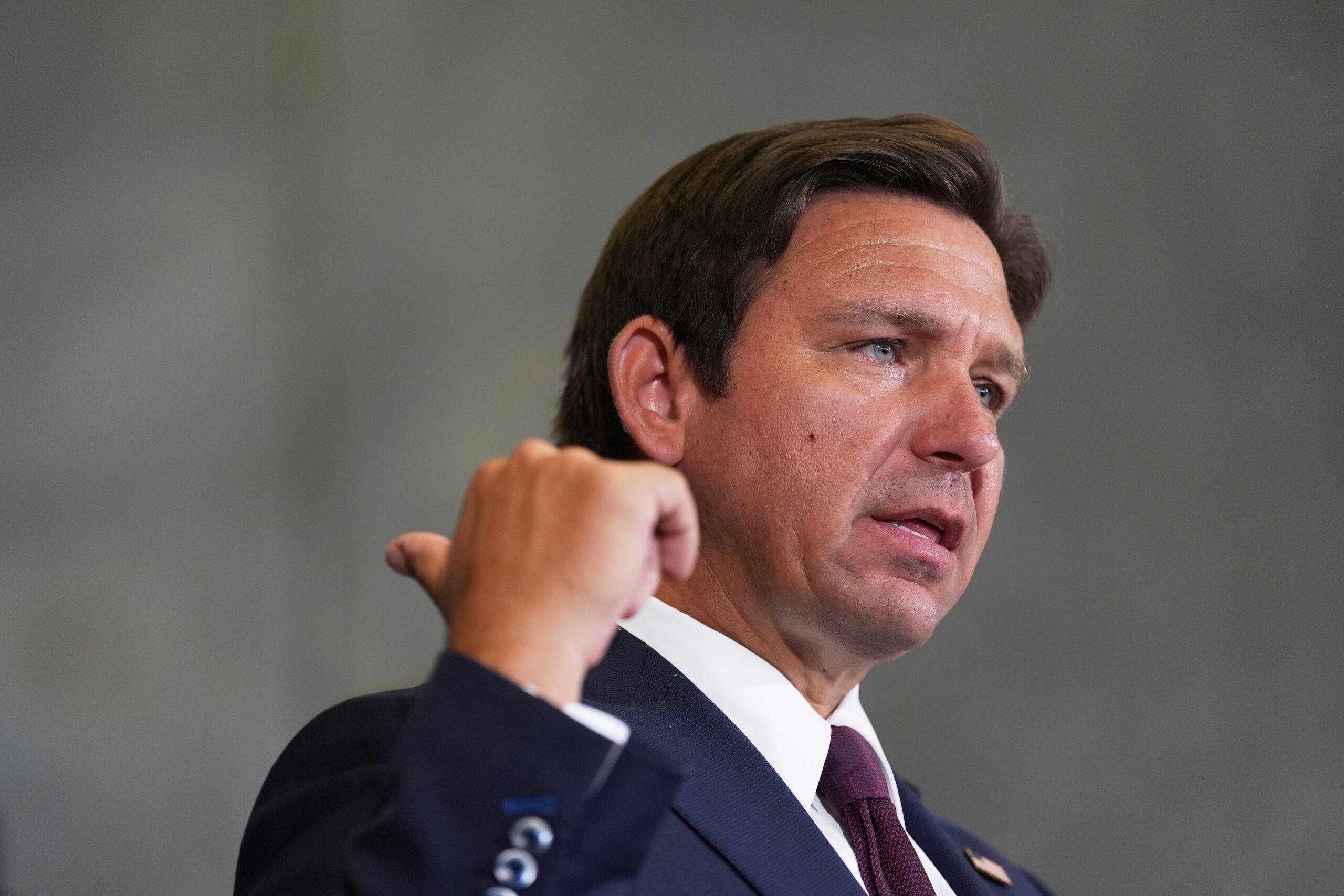TALLAHASSEE, FL.While a federal judge makes a decision regarding the state’s holding center for immigrants at an isolated airstrip in the Florida Everglades known as Alligator Alcatraz, the administration of Republican Governor Ron DeSantis of Florida is getting ready to open a second immigration detention facility called Deportation Depot at a state prison.
The Baker Correctional Institution, a state prison located roughly 43 miles (69 kilometers) west of downtown Jacksonville, will host the new facility, DeSantis revealed Thursday. According to state officials, it is anticipated to have 1,300 beds for immigration detention, but that number might be increased to 2,000.
Suggested Videos
DeSantis defended the construction of the second detention facility by claiming that President Donald Trump’s administration requires the extra space to house and deport more immigrants after he opened the Everglades facility last month.
According to DeSantis, there is a demand for this. I have no doubt it will be full.
Kristi Noem, the secretary of the Department of Homeland Security, has praised Republican governors’ attempts to increase their capacity for immigration detention and referred to Florida’s collaboration as a template for other state-run holding facilities.
The facility is expected to open in two to three weeks.
DeSantis, who estimated the build-out cost at $6 million, praised the relative simplicity and cost-effectiveness of establishing the facility within an existing prison in northern Florida. In contrast, the state has committed to spending hundreds of millions of dollars to build the largest network of tents and trailers at the south site in the untamed and isolated Florida swamp.
The state inmates do not now use this section of the facility. DeSantis described the state prison as ready-made, saying, “It just gives us an ability to go in, stand it up quickly, stand it up cheaply.”
Kevin Guthrie, head of the Florida Division of Emergency Management, which is responsible for constructing the immigration facilities, said it may take two to three weeks to get the facility up and running.
Due to ongoing staffing difficulties, the state had already declared plans to “temporarily” close the jail in 2021.
When predicting the construction timetable, Guthrie stated that a structure that has been inactive for a few years will face some unexpected difficulties.
Air conditioning, which is not mandated under Florida’s jail regulations despite the state’s hot environment, is one of the upgrades that are required.
The Florida National Guard will be on scene.
According to DeSantis, the Florida National Guard and state contractors would manage staffing at the location as needed. Prior to being called upon to assist the state’s immigration enforcement efforts, the state’s National Guard had been asked to assist in managing the state’s jails for over two years because of ongoing staffing shortages.
In the past, DeSantis had hinted at opening a second detention center at Camp Blanding, a Florida National Guard training site located around 30 miles (48 kilometers) southwest of Jacksonville. According to the facility’s website, the historic military installation was a key World War II training ground for the U.S. Army and serves as a continuity of government location for Florida’s executive branch.
However, DeSantis claimed the Baker facility was a better fit because to its available capacity and close proximity to a regional airport when he announced the plans Thursday.
According to DeSantis, Blanding does have aviation capacity, but its runway is most likely too small to accommodate heavy aircraft.
A civil rights case is filed against an Everglades facility.
DeSantis promised that the same services offered at the state’s first detention center will be provided to inmates in the new facility.
In a court brief, attorneys representing detainees at the Everglades facility described the conditions there as appalling, stating that some of the inmates are exhibiting COVID-19 symptoms without being isolated from the general public. Officers walk from cell to cell, forcing detainees to sign voluntary removal orders before allowing them to speak with their lawyers, and rainwater floods their tents.
In the court brief, the lawyers said that the captives’ sense of desperation had been heightened by recent conditions at Alligator Alcatraz.
A declaration on Wednesday, ahead of a hearing on the detainees’ legal rights on Monday, detailed conditions at the hurriedly constructed detention facility. U.S. District Judge Rodolfo Ruiz is being asked by civil rights lawyers to guarantee that inmates at the institution get private access to their counsel, which the attorneys claim they haven’t had.
Claims that detainee lawyers have been unable to meet with their clients were refuted by the state of Florida. In-person meetings began on July 28, according to state officials, and the state has approved every request for a detainee to speak with a counsel since videoconferencing began at the prison on July 15. Early in July, the first detainees arrived.
In order to file applications for the detainees’ bond or release, the attorneys for the detainees also asked the judge to designate an immigration court with authority over the detention facility. The civil rights lawyers claim they have frequently been informed that the inmates detained in the Everglades are not under the jurisdiction of Florida’s federal immigration courts.
___ This report was written by Mike Schneider of the Associated Press in Orlando. The Associated Press/Report for America Statehouse News Initiative is where Kate Payne is a corps member.A nonprofit national service initiative called Report for America places reporters in local newsrooms to explore topics that aren’t often covered.








